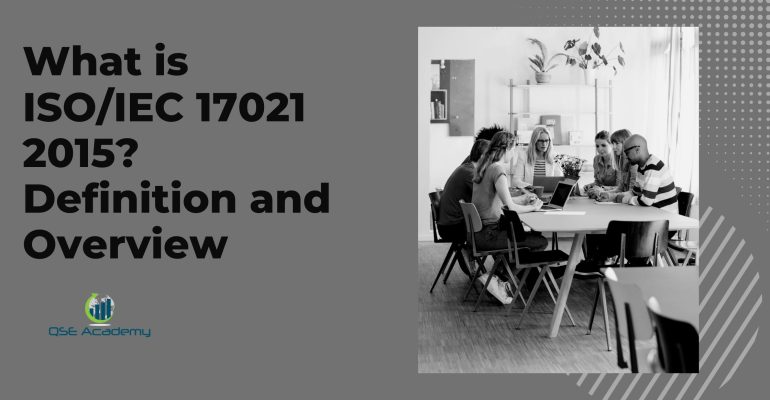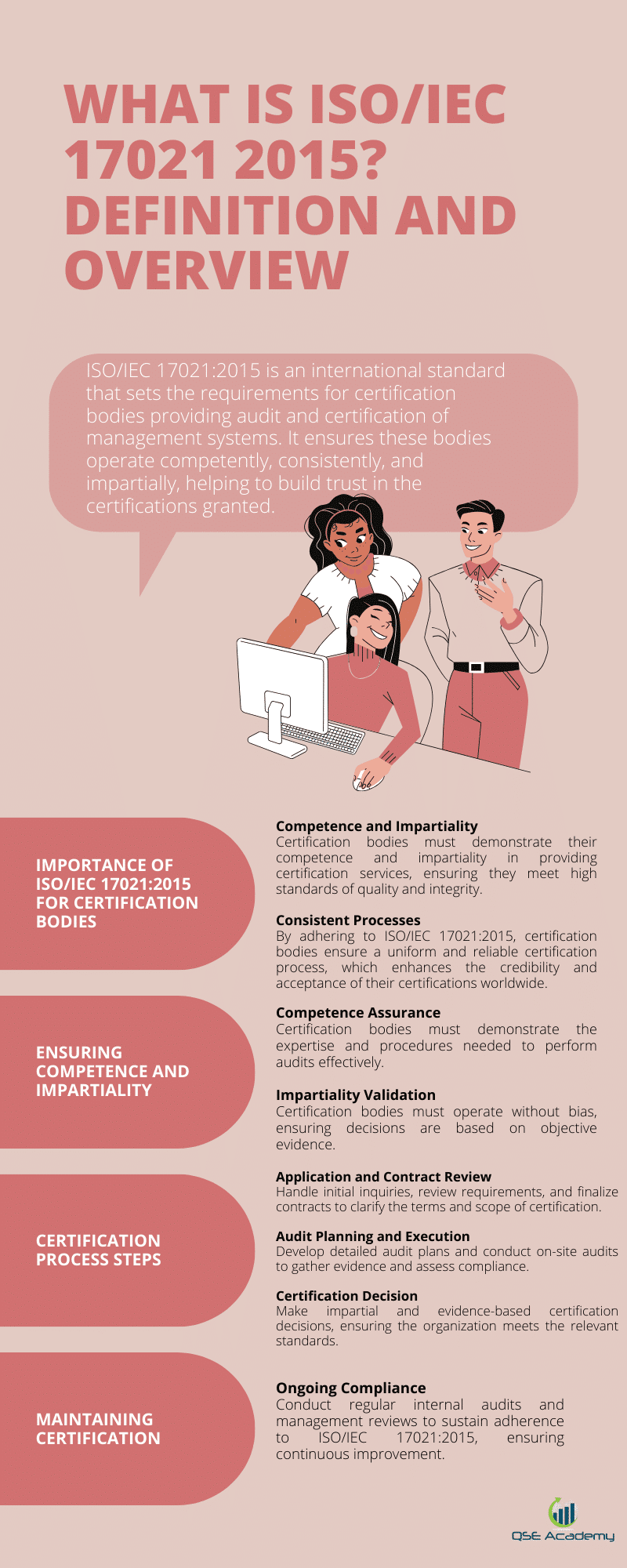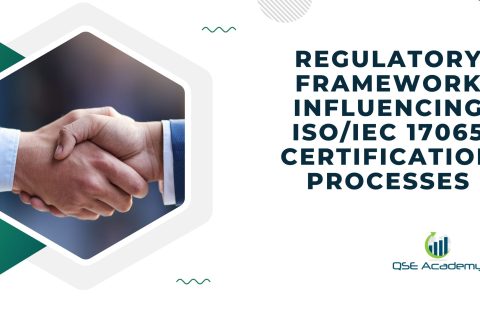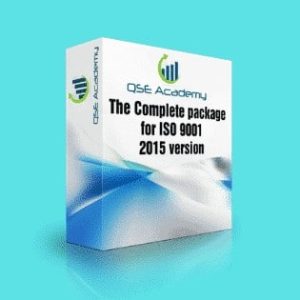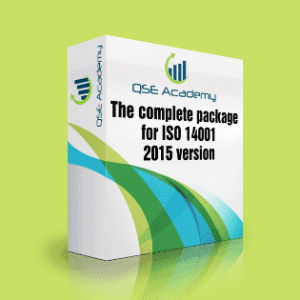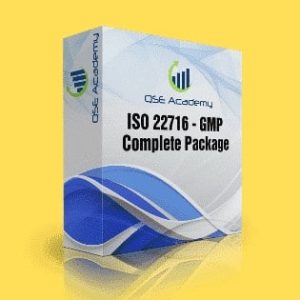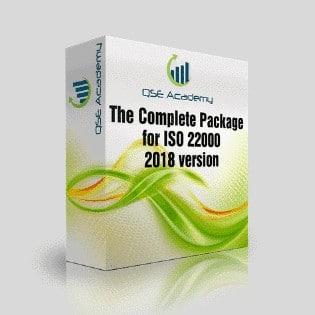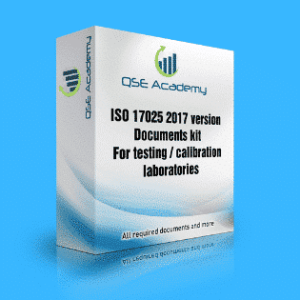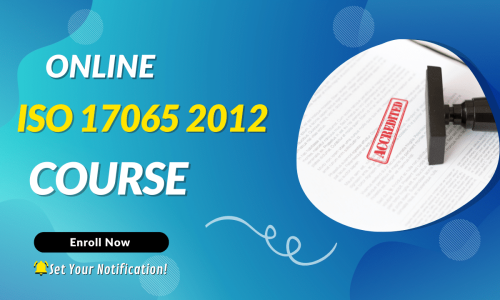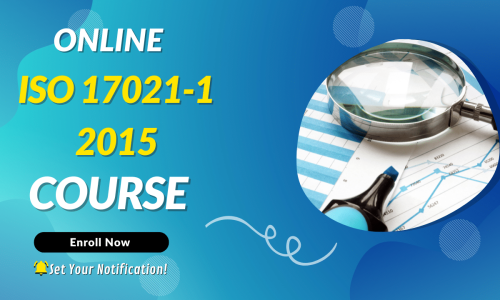What is ISO/IEC 17021 2015?
In the intricate labyrinth of global standards, ISOV 17021 2011stands as a sentinel, guiding certification bodies with stern precision. It is the invisible architect of trust in the complex world of conformity assessment. This article offers a navigational chart into the depths of ISO/IEC 17021-1, unearthing its very definition and its solemn purpose. Diving into the significance of ISO/IEC 17021-1 for certification bodies, it illuminates the vital role this standard plays in maintaining competence and impartiality—cornerstones of their credibility. Exposing the multifaceted management systems under its purview, from quality to anti-bribery, the article maps the terrain of the standard’s reach. In the following passages, we journey through the corridors of certification processes and third-party assessments, exploring how international recognition of these certifications opens doors across borders. Finally, we understand the pivotal influence of regulatory authorities and the pursuit of uniformity in certifications. Join us as we chart the anatomy of ISO 17021 2015 and its impact on the global marketplace.
Overview of ISO/IEC 17021-1:2015
ISO/IEC 17021-1:2015 is an internationally recognized standard that spans the requirements for certification bodies providing audit and certification of management systems. This standard is integral to the process of third-party conformity assessment and ensures that these bodies operate in a competent, consistent, and impartial manner. Organizations around the world look to certification bodies accredited to ISO/IEC 17021-1 to obtain certifications for various types of management systems they implement.
When a certification body complies with ISO/IEC 17021-1 standards, it conveys to stakeholders that their certificates are of equivalent standing and quality to those issued by any other accredited body. The 2015 revision of the standard places a stronger emphasis on elements such as enhancing the service delivery of certifications, exerting greater control over operations across remote locations, managing risks effectively, as well as explicitly defining the requirements regarding the time and duration of audits. These improvements ensure a trustworthy and transparent framework that bolsters the credibility of the certification process.
Definition of ISO/IEC 17021-1
ISO/IEC 17021-1 is a standard formulated by the ISO/IEC Committee on Conformity Assessment (CASCO), which specifically targets certification bodies. The intention is to assess these bodies to verify that their operations are competent and in harmony with the principles of various management systems. In its 2015 update, ISO/IEC 17021-1 aimed at augmenting operational control over the activities of certification bodies, particularly their remote offices, to maintain the high standard of certification services provided, regardless of location or organizational structure.
The standard sets out generic requirements for management systems auditing, thereby establishing a uniform benchmark for the competent assessment and subsequent certification by skilled auditing teams. For certification bodies that were initially accredited to ISO/IEC 17021:2011, transitioning to the latest ISO/IEC 17021-1 standard involves minimal changes, making it accessible for bodies to stay up-to-date with current practices. Importantly, ISO/IEC 17021-1 is part of a suite of standards that cater to specific requirements of management systems like environmental, quality, and business continuity.
Purpose of ISO/IEC 17021-1
The primary objective of ISO/IEC 17021-1 is to ensure that certification bodies are fit to conduct an impartial and competent assessment of management systems. This standard enables these bodies to be recognized and facilitates the acceptance of their certifications on a national and an international scale. Through the provision of a universally applicable set of requirements for management system auditing, ISO/IEC 17021-1 champions competence, resource adequacy, and consistency across auditing processes.
Adherence to ISO/IEC 17021-1 not only helps certification bodies in verifying that organizations comply with specific requirements but also in demonstrating that these organizations are capable of consistently achieving their articulated goals through effective implementation of their policies and processes. Hence, organizations striving for certification turn to ISO/IEC 17021-1 compliant bodies as they offer a level of assurance, serving as proof of conformity to standards, which can be crucial for customer assurance and satisfying other interested parties.
Importance of ISO/IEC 17021-1 in Certification Bodies
ISO/IEC 17021-1 is recognized globally as an essential standard for certification bodies. This standard underpins the proficiency and consistency of certification bodies when it comes to the auditing and certification of various management systems. ISO/IEC 17021-1 requires these bodies to conduct their operations impartially and consistently, ensuring the reliability and repeatability of audit outcomes across diverse sectors. By establishing generic requirements for the audit and certification processes, the standard provides a uniform structure for evaluating quality, environmental, and other management systems, which is a cornerstone for a valuable and trusted certification process.
Role of ISO/IEC 17021-1 in ensuring competence and impartiality
The 2015 revision of ISO/IEC 17021-1:2015 delineates clear norms and criteria aimed at preserving the competence, consistency, and impartiality of certification bodies. This ensures a meticulous review of management systems and upholds the principles of third-party conformity assessment. Notably, organizations that are accredited according to ISO/IEC 17021-1:2015 are not required to offer certification for all management systems, allowing them to specialize and hone their expertise in specific fields. This specialization further enforces the level of proficiency required by the standard. The standard’s framework guarantees that impartiality is maintained by these third-party conformity assessment bodies, putting the interests of stakeholders at the forefront of their certification activities.
Benefits of adhering to ISO/IEC 17021-1 for certification bodies
Embracing the requirements of ISO/IEC 17021 ensures that certification bodies are appropriately equipped with the necessary competencies to perform effective and impartial audits. Herein lies the assurance to all stakeholders that their preferred management systems meet the required standards and are reliably implemented. This rings particularly true across international markets, promoting global trade by providing a universal benchmark for conformity to certification conditions. Certification bodies accredited by ISO/IEC 17021 are verified by accreditation organizations like the International Accreditation Service (IAS) and the International Organisation for Accreditation Services (IOAS), which raises their credibility and recognition significantly. A table outlining the clear-cut benefits includes:
| Benefits of ISO/IEC 17021-1 | Description |
| Competence Assurance | Ensures certification bodies have the necessary expertise and procedures to perform audits effectively. |
| International Recognition | Facilitates global trade by enabling the mutual acceptance of certifications across borders. |
| Impartiality Validation | Verifies that certification bodies maintain neutrality, providing trust in the certifications granted. |
| Standardized Processes | Guarantees a consistent audit and certification experience irrespective of geography or system type. |
| Stakeholder Confidence | Builds trust among interested parties that management systems are evaluated comprehensively and fairly. |
By following these exacting standards, certification bodies provide much-needed reassurance that management systems are not only in compliance with international standards but are also executed efficiently to realize strategic business objectives.
Types of Management Systems Covered by ISO/IEC 17021-1
ISO/IEC 17021-1:2015 is integral to ensuring that certification bodies can properly audit and certify a multitude of management system standards that vary in focus and application. This broad span of management systems includes, but is not limited to, Quality Management Systems (ISO 9001), Environmental Management Systems (ISO/IEC 14001), Business Continuity Management Systems (ISO/IEC 22301), Asset Management Systems (ISO/IEC 55001), Anti-Bribery Management Systems (ISO/IEC 37001), and Event Sustainability Management Systems (ISO/IEC 20121). Under the umbrella of ISO/IEC 17021, each of these system standards has corresponding technical specifications or parts, such as ISO/IEC TS 17021-2 through ISO/IEC TS 17021-6, which address the particular criteria needed to audit and verify compliance within their respective frameworks.
Quality Management Systems (ISO/IEC 9001)
Quality Management Systems, especially ISO 9001, epitomize one of the most widely recognized standards for establishing an effective quality management framework. ISO/IEC 17021:2015 plays a critical role as it sets the bench for audit procedures, ensuring these systems adhere to the highest standards. Certification bodies use ISO/IEC 17021:2015 to verify an organization’s commitment to continuously improving quality and customer satisfaction. Through its comprehensiveness, this standard facilitates a reliable certification that is recognized and respected on a global scale.
Environmental Management Systems (ISO/IEC 14001)
Environmental stewardship is at the forefront of modern business practices, making ISO/IEC 14001 an increasingly crucial standard for organizations worldwide. Auditing and certification under ISO/IEC 17021-1:2015 for such systems ensure that environmental processes are managed effectively, and continual improvement is pursued. The third-party conformity assessments, as guided by ISO/IEC 17021-1:2015, maintain the rigor and credibility necessary for certifications in environmental management, thus upholding the integrity and operational efficacy organizations strive to achieve.
Business Continuity Management Systems (ISO/IEC 22301)
ISO/IEC TS 17021-6 dives into the specifics required for certifying Business Continuity Management Systems, typified by ISO/IEC 22301. By adhering to the standards set forth by ISO/IEC 17021-1:2015, certification bodies can address and validate the specialized processes that ensure an organization’s resilience to interruptions. Auditing against these benchmarks allows for a verification that a business can maintain essential functions during and after a disruptive event, providing peace of mind to stakeholders and clients alike.
Asset Management Systems (ISO/IEC 55001)
ISO/IEC TS 17021-5 provides a dedicated set of requirements for the certification of Asset Management Systems, such as those based on ISO/IEC 55001. The capabilities of certification bodies audited against these requirements guarantee an in-depth understanding of the management, control, and optimization of assets. Whether tangible or intangible, the assets’ life cycle is thoroughly examined, and their effective management is confirmed through unbiased and proficient certification.
Anti-Bribery Management Systems (ISO/IEC 37001)
The integrity of an organization in today’s global business environment is paramount, necessitating robust Anti-Bribery Management Systems like ISO 37001. Certification bodies guided by ISO/IEC 17021-1:2015 assert that the systems in place are not merely present but are robust and actively managed. Trust in these certifications is backed by the rigorous assessment process set out in the standard, which demands a high level of competence from auditors, ensuring they are more than equipped to verify anti-bribery measures.
Event Sustainability Management Systems (ISO/IEC 20121)
ISO/IEC TS 17021-4 specifically targets the certification of Event Sustainability Management Systems, such as those compliant with ISO/IEC 20121. This particular norm is instrumental in ensuring that the environmental, social, and economic demands placed on events are sustainably managed. Through competent teams trained in accordance with ISO/IEC TS 17021-4, certification bodies are equipped to scrutinize and certify that an event management system is sustainable and adheres to international best practices.
With the structured and meticulous approach encapsulated in ISO/IEC 17021-1:2015 and its related technical specifications, the diversity and complexity of these management systems are competently audited, leading to certifications that are respected worldwide. This facilitates continual improvement, compliance, risk management, and overall effectiveness within an organization’s management systems.
Certification Process for Management Systems
The certification of management systems is a crucial element in the international trade landscape, representing a pact of trust among businesses, their clients, and regulatory authorities. As a third-party conformity assessment activity, the certification process stands out for its ability to impartially validate an organization’s compliance with specific management system standards. ISO/IEC 17021:2015 is the foundational framework that forms the spine of this process, detailing the fundamental prerequisites for certification bodies to operate with competence, consistency, and impartiality.
ISO/IEC 17021-1:2015 spells out the meticulous steps certification bodies must follow to ensure a management system’s compliance with the relevant standards. The intent is not just to instill confidence within an organization’s management systems but also to qualify suppliers within supply chains, thus enhancing the network of trust and mutual recognition on a national and international scale. Importantly, the ISO/IEC 17021 standard permits certification bodies the flexibility to choose the management system standards they wish to certify, provided they adhere to the generic requirements mandated by the international standard for a consistent process.
Steps involved in the management system certification process
The certification process, as delineated in ISO/IEC 17021-1:2015, involves several streamlined steps. Initially, it requires determining the specific requirements of the management system standard to be audited. Following this, a competent audit team, equipped with adequate resources, conducts the audit in line with the rigorous framework laid out in the standard.
Upon successful completion of the audit, a certificate is issued—a formal attestation to the organization’s adherence to the management system’s standards. The entire process is underpinned by strong operational and organizational controls to ensure reliability and credibility of the certification, even across certification bodies operating multiple remote offices.
The 2015 revision of the ISO standard places a greater emphasis on risk management, clearly defining audit time and durations, and requires a sound justification to be documented for the audit duration specified. Accredited certification bodies are expected to integrate these modifications seamlessly into their existing procedures, thereby augmenting the credibility and integrity of the certification system.
Specific requirements outlined in ISO/IEC 17021-1 for certification bodies
ISO/IEC 17021-1:2015 contains a clear set of specific requirements that certification bodies must follow. Among the key requirements is the stipulation for deployment of competent audit teams, who should possess the requisite skills and resources to carry out the certification processes. This ensures that the audit results and subsequent reports are not only accurate but also communicated in a consistent manner across different bodies.
Furthermore, certification bodies accredited to ISO/IEC 17021-1 confirm their commitment to upholding the highest standards of impartiality while issuing ISO management system certifications. Adherence to this international standard is what underpins the global equivalence and recognition of the certificates issued. Compliance with ISO/IEC 17021-1 thus ensures that certificates delivered by a certification body command respect and recognition from all stakeholders involved.
Requirements for Bodies Providing Third-Party Conformity Assessment
ISO/IEC 17021-1:2015 embodies a comprehensive set of prerequisites for certification bodies tasked with the competent, consistent, and impartial auditing and certification of various management systems. It constitutes a critical tool for enhancing the reputation and reliability of management system certifications both for public and private entities worldwide. Organizations that measure their processes against the standards outlined in ISO/IEC 17021-1 ensure that their certification services are recognized on an international platform, thus fostering trust and facilitating global trade.
Fulfilling the requirements of ISO/IEC 17021-1:2015 means that certification bodies commit to maintaining a high level of proficiency and fairness, reinforcing the robustness of their evaluation processes. These stipulations are design to provide reassurance to all stakeholders involved that certifications issued by these bodies carry a stamp of quality assurance and meet the conditions necessary for international commerce.
Moreover, ISO/IEC 17021-1 is built on a set of generic criteria applicable to bodies involved in auditing and certifying a wide array of management systems, including but not limited to Quality Management Systems (QMS), Environmental Management Systems (EMS), and other specialized management standards. By conforming to ISO/IEC 17021-1 standards, certification bodies stand out as competent and impartial, which supports the international acknowledgment and acceptance of the certifications they issue.
Key provisions of ISO/IEC 17021-1 for third-party conformity assessment bodies
ISO/IEC 17021-1 articulates stringent criteria that third-party conformity assessment bodies must meet to carry out auditory and certification tasks of management systems proficiently. The standard applies across the spectrum of management systems, emphasizing their value and robustness to organizations around the globe.
Revisions to the standard, as compared to its predecessors, accentuate the competence of certification bodies and the auditors themselves. To be deemed competent, certification bodies are bound by conditions set within ISO 17021-1, where every aspect of their performance from the initial audit planning to the issuing of certification is scrutinized and expected to be of the highest standard. The clauses stipulated ensure that the management system certification process is not only in-depth but also universally recognized, underlining the significance of such certifications within the fabric of international trade and economic health.
Ensuring competence of the audit team in conformity assessments
The effectiveness of a management system certification is significantly dependent on the ability of the audit team to perform thorough assessments. Hence, ISO/IEC 17021-1:2015 underscores the importance of assemblying an audit team that demonstrates comprehensive competence relative to the scope of the audit. This includes possessing appropriate qualifications, expertise in the relevant management system standards, industry-specific knowledge, and the necessary soft skills to communicate findings efficiently.
Audit teams are the linchpin of the assessment process; they require continual training and evaluation to ensure that they remain aligned with the latest developments in the fields they monitor. They should also display a level of proficiency that instils confidence in the certification process, ultimately contributing to the reliability and validity of the certification issued.
Impartiality requirements for bodies providing certification services
At the heart of ISO/IEC 17021-1:2015 are clear imperatives surrounding the impartiality of certification services. To mitigate conflicts of interest and safeguard the integrity of the certification process, bodies providing audit and certification services are mandated to operate in an unbiased fashion. Impartiality ensures that decisions are made based solely on objective evidence rather than any external pressures or influences.
The trust placed in the certification bodies is contingent upon their adherence to impartiality requirements outlined in the standard. This bolsters consumer confidence and assures clients and regulatory authorities that the certifications stand up to scrutiny and hold genuine worth in the marketplace. It also means such certifications are more readily welcomed on a global scale, thereby enhancing the certificate holder’s access to international markets and forging stronger international trade links. Compliance with these impartiality requirements contributes significantly to the wider acceptance and esteem of the certifications at the national and international levels.
International Recognition of Management System Certification
The harmonization of standards and the assurance of quality across international borders is a cornerstone of global commerce. Certifications that are recognized internationally play a pivotal role in achieving this, enabling businesses to demonstrate their commitment to excellence no matter where they operate. ISO/IEC 17021-1 lays a foundation for the global acceptance of management system certifications, supporting certification bodies to operate with a level of competence, consistency, and impartiality that is internationally esteemed.
By adhering to the requirements specified in ISO/IEC 17021-1, certification bodies gain accreditation that attests to their impartial judgment and technical competence. This recognition assures businesses and their partners that their management practices meet international standards, paving the way for their products and services to be trusted and accepted worldwide. Consequently, compliance with ISO/IEC 17021-1 is more than an accreditation for certification bodies—it is a passkey to international markets.
The global nature of trade and commerce positions internationally recognized certifications as valuable assets. Holding an ISO/IEC 17021-1 accreditation indicates that a certification body is capable of issuing management system certifications with worldwide equivalent validity. Such an accreditation ensures that the certificates a business holds will be met with the same level of respect and credibility as those issued by other accredited bodies, reinforcing uniformity and trust in international trade.
Significance of International Recognition in Facilitating International Trade
International recognition of management system certifications is not just a token of quality assurance; it is a catalyst for expanding trade routes and for laying the groundwork for robust industry relations. Certification bodies, when accredited to ISO/IEC 17021-1, are bestowed with the valued ability to assure that management systems meet the high standards required for global market trade. This levels the competitive playing field and opens doors for businesses to penetrate new markets with confidence.
From a trade perspective, international recognition translates to credibility. Organizations with certifications from ISO/IEC 17021-1 accredited certification bodies have a strategic advantage in the marketplace. Their management practices are seen as trustworthy, which in turn fosters partnerships and consumer trust globally. Additionally, such recognition allows certification bodies to explore new revenue opportunities by offering their internationally accredited services.
For international trade, the uniformity of certification suggests that procedures, products, and services adhere to globally accepted safe and ethical standards. This harmonization of expectations encourages diverse markets to engage with one another, knowing that the certifications they rely upon carry a consistent, trustworthy promise of quality and compliance.
How ISO/IEC 17021-1 Helps in Establishing Trust and Credibility Globally
ISO/IEC 17021-1 is not simply a set of guidelines—it is a principal mechanism through which trust and credibility are woven into the very fabric of global certification practices. By establishing a standard that mandates competency, consistency, and impartiality, this international standard safeguards the integrity of the certification process. It ensures that all organizations—irrespective of their size, sector, or geographic location—conform to a universally recognized benchmark of excellence.
Developed to facilitate admission into a global network of trusted certifications, ISO/IEC 17021-1 empowers certification bodies to validate management systems at a level that is recognized both nationally and internationally. This broad acknowledgement underpins the value of the certifications provided to all types of organizations, which, in turn, fortifies the trust in those businesses by potential international partners.
In an environment where trade and compliance are under constant scrutiny, ISO/IEC 17021-1 helps establish global trust and credibility by ensuring certifications that are reliable indicators of quality. It supports a clear and consistent certification landscape where the stakeholders—businesses, customers, and regulatory authorities—can have full confidence in the certifications held and the practices endorsed by them. This level of assuredness is fundamental in fostering a climate conducive to international cooperation and trade expansion.
Regulatory Authorities and ISO/IEC 17021-1
Regulatory authorities are pivotal in upholding the standards of management system certification. Their oversight ensures that the certification processes conducted by certification bodies are both competent and impartial. ISO/IEC 17021-1:2015 is an essential tool for these authorities as it provides a systematic framework aligning with regulatory requirements across different jurisdictions. By enforcing ISO/IEC 17021-1, regulatory authorities help to maintain the integrity of management system certifications, instilling confidence in businesses and stakeholders worldwide.
Certification bodies that achieve accreditation under ISO/IEC 17021-1 showcase their ability to carry out unbiased and proficient audit and certification services. This standard ensures that third-party conformity assessments are internationally recognized, facilitating global trade and fostering trust among business entities.
Role of Regulatory Authorities in Overseeing Management System Certification
Regulatory authorities use ISO/IEC 17021 as a benchmark to ensure the excellence of certification bodies. By doing so, they underscore the importance of impartial and expert certification activities, setting the stage for expansive confidence in those certifications. Authorities are tasked with ensuring that these certification bodies, whether governmental or private entities, consistently adhere to the highest standards.
The document sets forth the criteria for accreditation, peer assessment, and various audit processes relative to management system certification. By holding certification bodies to the precise requirements of ISO/IEC 17021, regulatory authorities protect the credibility of certification processes, thereby ensuring that certifications hold significant weight and are regarded as reliable and trustworthy.
Alignment of ISO/IEC 19171 with Regulatory Requirements in Different Countries
ISO/IEC 17021-1:2015 plays a critical role in harmonizing certification practices with regulatory demands across various regions and countries. Certification Bodies complying with ISO/IEC 17021-1 are internationally acknowledged for their use of proficient audit teams, implementing consistent certification processes, and generating reliable audit reports.
Accreditation to this standard signals a Certification Body’s alignment with regulatory requirements, rendering their granted certifications equivalent to those issued by other accredited entities across the globe. This uniformity is central to ensuring that certifications are accepted and held in the same esteem, irrespective of their country of origin.
By adhering to the standards set out in ISO/IEC 17021-1, Certification Bodies are in compliance with diverse regulatory frameworks, simplifying international trade and operations. This alignment benefits not only the organizations seeking certification but also bolsters a regulatory environment conducive to international commerce and cooperation.
In summary, ISO/IEQ 17021-1:2015 fosters a synergy between certification bodies and regulatory authorities, ensuring a mutually beneficial relationship that supports trade, trust, and regulatory compliance on an international scale.
Ensuring Consistency in the Certification Process
ISO/IEC 17021:2015 provides a robust framework for Certification Bodies, laying down the requirements to ensure that the management system certification process is executed with competence, uniformity, and neutrality. This international standard is designed to promote widespread recognition and acceptance of management system certifications, whether on national or international platforms. It mandates generic requirements for management systems auditing and certification, applicable to diverse fields, including quality, environmental sustainability, asset management, and more.
With each iteration, ISO/IEC 17021 has evolved to accommodate the specialized needs of different management systems, guiding Certification Bodies on the nuances of each field. Adherence to the standard ensures that organizations are assessed by competent audit teams that apply a consistent and impartial certification process, leading to reliable and consistent audit reports. In doing so, ISO/IEC 17021 provides a level playing field for businesses around the world, enabling a trusted framework for international trade and cooperation.
Standardization of the management system certification process through ISO/IEC 17021-1
The ISO/IEC 17021-1:2015 delineates specific requirements for certification bodies to conduct the management system certification process proficiently, uniformly, and impartially. Emphasizing these central values, the standard ensures a harmonized approach to auditing and certifying management systems, irrespective of their type. While a Certification Body may choose not to offer every type of management system certification, adherence to ISO/IEC 17021-1:2015 ensures it can conduct those it is accredited for with due diligence.
As a recognized third-party conformity assessment activity, certification of management systems under ISO/IEE 17021-1:2015 distinguishes a Certification Body’s commitment to a principle-driven and credible audit process. This compliance is vital for maintaining effective and trustworthy certification, validating the body’s processes and, ultimately, the certifications it issues. Standardization through ISO/IEC 17021-1 means consistency in the certification process not just locally, but on a global stage.
Benefits of consistent certification processes for organizations and stakeholders
For organizations seeking certification of their management systems, the ISO 17021 standard serves as an assurance that they measure up to international requirements and are effectively implemented. This is a testament to their commitment to excellence and readiness to meet global demands. Consequently, these organizations benefit from consistent and impartial assessments by ISO 17021 accredited Certification Bodies.
The steadfast guidelines provided by ISO/IEC 17021 foster a uniformity that allows stakeholders to have confidence in the equivalence of certification standards across different bodies. Such a harmonized approach brings substantial value, ensuring stakeholders that organizations with ISO/IEC 17021 certification are capable of persistently achieving their policy and objectives. All in all, this elevates the credibility and reputation of the certified organization amongst its customers and other interested parties, confirming the reliability and competence of its management systems.
Looking for More Resources on ISO 17021?
If you found this article helpful, explore our premium resources designed to help you achieve ISO 17021 certification efficiently:
- 📦 Complete Documentation Package for ISO/IEC 17021-1 2015: Get all the essential templates and documents you need for fast, easy implementation.
- 🎓 Online Course on ISO/IEC 17021-1 2015 : Enroll in our comprehensive training to master the key concepts and practical steps toward certification.
- 📋 ISO/IEC 17021-1 2015 Checklist: Download our detailed checklist to ensure you’ve covered every step of the process.
These resources are tailored to meet your needs and ensure a smooth certification journey. Explore them today and get one step closer to success!

